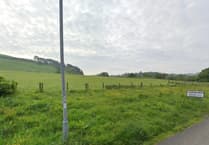Visitors who stay in static caravans for more than 31 days a year may not need to pay the tourism levy, a Powys finance chief has explained, as councillors remain split on the idea of introducing the tax in the county.
At a meeting of Powys County Council’s Economy, Communities and Residents scrutiny committee on 4 September, councillors received a report which looked at the pros and cons of implementing the levy – which could bring money into council coffers to run services.
The Visitor Accommodation (Register and Levy) Etc. (Wales) Bill is Wales’ first locally designed tax and was approved by the Senedd in July.
The levy is a charge on overnight accommodation and would cost £0.75 (75 pence) per person per night for those staying at campsites and hostels, excluding people under 18.
For those staying in all other types of visitor accommodation it would cost £1.30 per person per night.
The Welsh Government says that if all local authorities introduced this levy, it could generate up to £33 million a year across Wales.
This money could be used by councils to invest in infrastructure, especially that which is associated with tourism.
Cllr Adrian Jones brought up concerns about around regular visitors to the county who stay in caravans.
Cllr Jones said: “We have loads and loads of static caravans in our area, you can’t possibly be expecting to charge them daily rates, they are tourists, they come in the summer, but some are there all the time.”
Another issue he felt needed to be addressed is whether people who visit the county and stay overnight due to work would also be charged the levy.
“We need to have more detail on these bits and bobs that need to be sorted out,” said Cllr Jones.
Head of Finance, Mari Thomas said: “Based on the information we have at the moment, any stays of more than 31 days wouldn’t be charged.
“For people effectively staying in stating static caravans for longer than a month – the charge would not apply.”
Cllr Jones added: “These people usually come and go on weekends; it’s a complicated area.”
Councillors were presented with five options to discuss on ways to deal with the availability of the levy, with committee members supporting council officers who recommended that the council is “minded not to implement the levy, but undertake an engagement exercise with the residents, businesses and tourism stakeholders of Powys to gather evidence and views.”
Cllr James Gibson-Watt, cabinet member for education and economic development, explained that senior councillors wanted to know the opinion of the scrutiny committee before “committing” to any of the options.
Cllr Gibson-Watt said: “It’s an interesting idea, but as is often the case Welsh Government tend to delegate controversial things down to local government to make the final decision.
“This levy idea is not a new one – it’s well established in many countries of the world.”
The report will go before a Cabinet meeting later this month.





Comments
This article has no comments yet. Be the first to leave a comment.